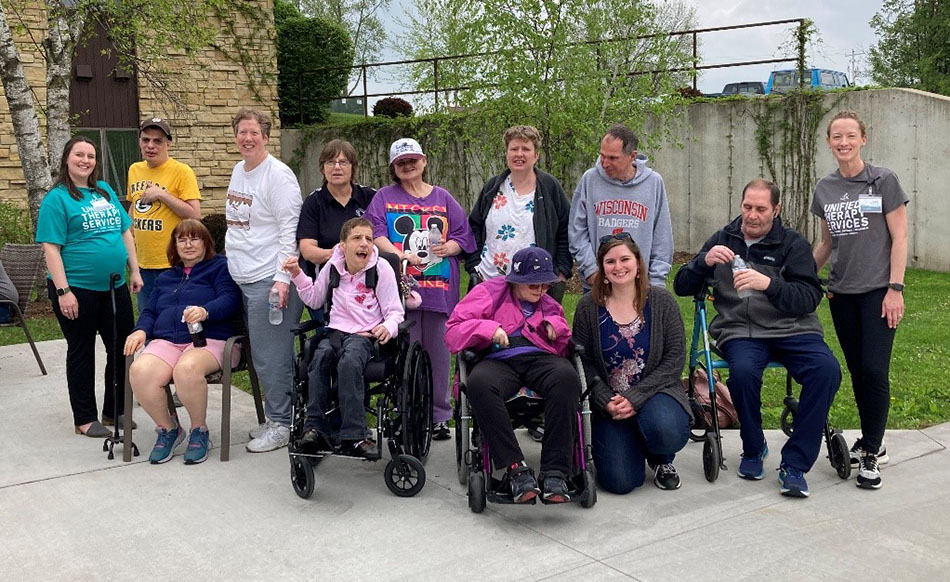
According to the Centers for Disease Control and Prevention, an estimated 61 million adults in the United States live with a functional disability. These disabilities can be physical, cognitive, or a combination thereof, with the former encompassing movement, vision, and hearing difficulties, and the latter comprising decision-making or thinking impediments. Disabilities can affect anyone, regardless of whether they are born with them or acquire them later in life. As such, people with disabilities face a higher risk of injuries and may have difficulty maintaining an active lifestyle. It is therefore essential to prioritize physical, speech, or occupational therapy as needed. These therapies can significantly enhance one's quality of life and help achieve wellness goals.
In this blog article, we will explore various treatment options available for physical, speech, and occupational therapy.
Physical Therapy
Physical therapy is a type of treatment that can help people with disabilities improve their physical abilities and overall well-being. They use exercises, stretches, and other techniques to help patients improve their strength, flexibility, coordination, and balance, enabling them to perform daily tasks more easily with less pain or discomfort. A physical therapist can also assist in individuals and families with acquiring medical equipment to assist them in transfers, mobility, and activities of daily living in their home.
Physical therapists work with a wide range of disabilities, including neurological conditions like stroke, spinal cord injuries, and traumatic brain injuries, musculoskeletal disorders such as arthritis, sports injuries, and back pain, as well as developmental disorders like cerebral palsy and Down syndrome. They also work with individuals who have suffered from amputations, balance, and gait disorders, and those who have undergone surgeries such as joint replacements. The goal of physical therapy is to help individuals regain their strength, mobility, and independence and improve their overall quality of life.
Occupational Therapy
Occupational therapy is another crucial form of rehabilitation for individuals with disabilities. Occupational therapists help people perform their daily tasks and activities and work with people who have physical, mental, or developmental conditions that make it difficult for them to carry out their routine activities, such as dressing, grooming and eating. Occupational therapists use various techniques and activities to help people improve their motor skills, cognitive abilities, and emotional well-being, enabling them to lead a better life.
Common conditions that occupational therapists treat include stroke, traumatic brain injury, spinal cord injury, developmental disorders, and mental health conditions. OTs develop a personalized treatment plan that includes a range of activities and exercises to improve their patients' strength, flexibility, coordination, and cognitive abilities.
Speech Therapy
Speech therapy is a treatment that assists individuals with comprehension, processing, expressive communication and swallowing difficulties. Speech therapists work with patients to improve their ability to speak clearly, understand language, and communicate effectively. Speech therapy can be especially helpful for individuals with communication difficulties resulting from a stroke, traumatic brain injury, or other conditions. It can help set up an environment that can be adapted to their skill level and can improve communication skills and provide exercises and techniques to improve swallowing abilities and decrease risk of aspiration and choking.
Speech therapists help individuals with a range of conditions, such as stuttering, voice disorders, aphasia (difficulty with language), and dysarthria (difficulty with speech). The therapists work on exercises to improve the strength and coordination of the muscles used in speech, as well as techniques to help individuals overcome communication barriers. Additionally, speech therapists may work with individuals on cognitive skills, such as memory and problem-solving, that are related to everyday activities. Overall, the goal of speech therapy is to help adults with disabilities improve their ability to function in their everyday life and enable them to communicate effectively and confidently.
In conclusion, physical, speech, and occupational therapy are essential forms of rehabilitation for adults with disabilities. These therapies can significantly improve patients' quality of life by enhancing their physical abilities, cognitive skills, and emotional well-being. Physical therapists, occupational therapists, and speech therapists work together to develop personalized treatment plans that can help patients regain their strength, mobility, and independence. With the right therapy, individuals with disabilities can lead a better life and achieve their wellness goals.
This article was provided by the physical, occupational, and speech therapy team at Unified Therapy Services, located in Dubuque, IA and Lancaster, WI. Please call our office if you or a loved one needs help with physical, occupation, or speech therapy services. 563-583-4003 or visit www.unifiedtherapy.com
